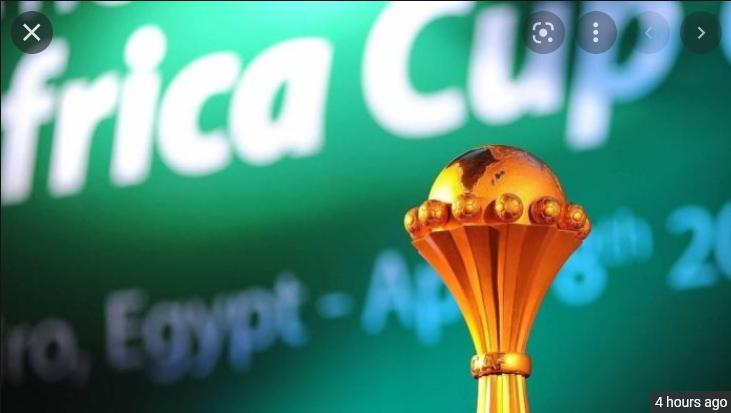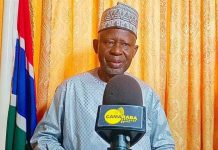Africa-Press – Gambia. On Sunday, February 6, at the first Africa Cup of Nations to be played in Cameroon since 1972, Senegal finally took home the coveted trophy after two previously unsuccessful attempts. The Lions of Teranga defeated the Pharoahs of Egypt 4-2 on penalties after the final ended 0-0 after 120 minutes of deadlocked football. Liverpool FC’s Sadio Mane scored the winning penalty kick after he had missed a crucial first attempt early in the final. He finished the competition as AFCON 2021 best footballer.
However, the duty of every serious football association across the continent is to take stock of the teachable moments that were available for learning at the tournament and effect the appropriate changes in the football system and culture that will leave their national teams in better stead.Any other nation wishing to follow in Senegal’s footsteps and win AFCON for the first time or add to the multiple times they have clinched the trophy in the past will have to make conscious, disciplined and consistent efforts to prevail over the odds stacked up against them.
Much has been made of the claim that there are no minnows left in African football. The competition in Cameroon took it upon itself to provide indubitable evidence to back up this claim. AFCON debutants in the Comoros and Gambia gave an excellent account of themselves as they progressed through tough group stages to the knockout stage and the quarter-finals, respectively. The Comoros team stood resolutely against hosts and tournament favourites Cameroon without a recognised goalkeeper and with 10-men for most of the game, while Gambia knocked out an impressive Guinean team in a debut tournament to be proud of.Countries with far more superior rankings, that were expected to present a serious challenge for the trophy, failed to live up to their billing. The more notable of these disappointing showings at the competition were the duo of defending champions Algeria and Ghana. Algeria had nothing of the form that saw them win the inaugural FIFA Arab Cup as their inability to score and a slew of disallowed goals marked their time in Cameroon before they were bundled home with only one goal to their credit.
Similarly, an underwhelming and disjointed team display saw Ghana unable to qualify for even a measly third slot in a group with teams from Morocco, Gabon and Comoros. Ghana were so disappointingly poor that Milovan Rajevac was fired after they crashed out bottom of the group.
The contrasting fortunes of debutants and more established teams could not be starker than when x-raying Nigeria’s participation in the competition as a whole. The Super Eagles were unceremoniously dumped out of the competition in the very first tie of the knockout stages by the Tunisian Eagles of Carthage. The Super Eagles, the best team of the competition at the group stage, could not go past a team depleted by positive COVID-19 tests, which affected no fewer than 12 players, including the coach and had to face Nigeria under the guidance of the assistant coach. It could not be more contrasting that the same Egyptian side that Nigeria defeated in their opener went on to the final, but the Eagles could not go past a poor Tunisia that barely scraped through as third best in Group F.
The lessons to take home from stocktaking the outcome of Cameroon 2021 are numerous. At the top must be considered the lesson of consistency at the managerial level, which brought Senegal to victory in that fateful February 6 final. The Lions of Teranga have had the same head coach, Aliou Cisse, since 2015 and the strands of progress made overtime, which were obvious at the last AFCON in 2019 when they reached the final but lost to Algeria, reached fruition this year. Cisse, one of the 15 of 24 coaches this year that were native to the countries they were coaching, was also the first Senegalese captain to play in an AFCON final, when Senegal reached their debut final in 2002. It is all evident in the solid experience and proper background rooted in patriotism and wrapped in the loyal confidence reposed on him by the country’s football management.
Nigeria can learn from that. Adequately preparing for sporting competitions has not been the country’s forte. Often shoddy, sometimes haphazard, preparation for major tournaments have let down some of the country’s best, especially when they have to contend against better-prepared opponents. This was at play in last year’s Olympics in Tokyo, Japan and again in Cameroon. The firing of Rohr so close to the start of the competition and the NFF gamble with caretaker coach Augustine Eguavoen and Portuguese appointee Jose Peseiro, the latter of which was subsequently rescinded, all display an acute lack of adequate planning.
The furore over attempts by UEFA clubs to withhold players, using COVID-19 as cover, drew the attention of the world to AFCON 2021 and it is to Cameroon’s credit that there was no outbreak that made it impossible to continue and that the quality of the broadcast and accompanying organisation did not derail the scheduling.
A stampede that resulted in fatalities marred the overall success of the competition and the attitude of some fans, who resorted to physical violence and online abuse after their team lost, left much to be desired. Yet, that is also a lesson that the Confederation of African Football can also take home from AFCON 2021.
For More News And Analysis About Gambia Follow Africa-Press






